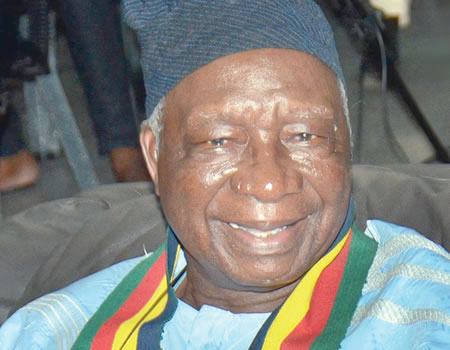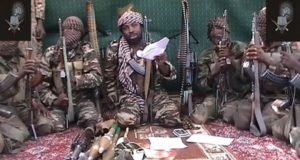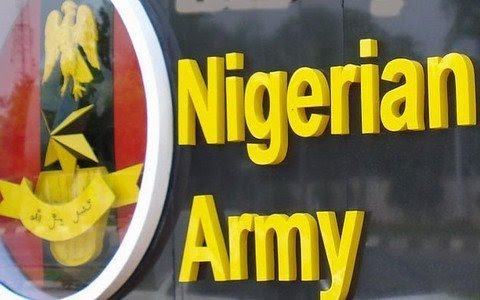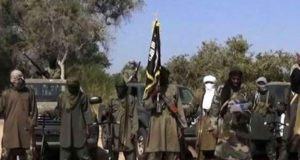
Ibrahim Haruna
In a recent interview, General Haruna spoke about the military now and then, insecurity, establishment of Amotekun, amnesty bill for ex- Boko Haram members and so on.
According to him, the legitimacy of Amotekun is tainted since the provisions of the constitution are very clear as to what policies of security services are created by the constitution and how to create additional ones.
He added that there is a false start in the proposition of the amnesty bill for ex Boko Haram members because it is not obvious how the members will be identified.
I have not seen the bill, but how are they identified? What is really the mischief that is being avoided. If they are Boko Haram, how are they identified? Is it through Islamic background? Again, they are not in the mainstream Islamism, they are like radicalized Islam and fundamentalist Muslim, so how are you going to identify them? I think there is some false start in this proposition.
His words, “This is not the only government that had to tackle with these criminalities; first of all they are not new, what has happened is that they have become more enlarged and have recruited more practitioners, therefore it is not just this government.
From the end of the civil war, we have had several governments and we have had issues that were coming up, but were not controlled and have therefore grown to what we are experiencing today. Let’s say for example, at the end of the civil war, there were large proliferation of arms on both sides of the divide. The development plan did not meet the full expectations. Then the effect of the structural adjustment, changing the structure of economic development. You saw what happened to the textile industries, the farms, various manufacturing industries.
The domestic growth went very high and suddenly, it collapsed and people became generally poor and disenchanted. As our economic patronage had been dwindling so also is the social and economic pressure on the people, and since we did not keep pace with sustaining the economy, more and more people are falling into poverty and more and more pressure had gone into the society because of the growing rate of the population and the inability to provide employment and education for the appropriate engagement, the industry of feeding the market is a big problem now.
So over time the collapse of governance and the failure of leadership ethics to abide by the law and to provide good governance, to protect lives and property has led to what we have today.
I think that if the rule of law was applied in the circumstances that brought about say Boko Haram insurgency, it would not have risen because we have so many acts of insurgency, rebellion or crisis. Maitatsine and all the rest, they were not crumbled and the perpetrators were never brought to book, so government did not show leadership in winning those incipient developments of attacking the unity and sovereignty of the Nigerian state. This has brought more about today.”
“But it is not only that, the intensity of it has come to bear because of what has happened outside Nigeria, that also impact on our own growth of criminality, terrorism, insurgency. See what happened in Libya, what France has done to their erstwhile colonies and see how the promotion or support of the strong powers, United States, Europe have had in supporting their interests in the Middle East, creating a reaction of terrorism between the people in the Middle East and of course the lies told of weapons of mass destruction leading to war.
I think the turmoil that went on there, together with the Americans and the Russians fighting for Pakistan, developing their own terrorist groups or leaders who turned against them and in doing so the hate messages that led to 9/11.
All these things that happened had impact, though slowly on us, as a result, our security problems are intensified by the desire to have either strategic control and also the failure to take care of what happened after Ghadafi … Libya and all the struggles between the various forces in Egypt. We are not in isolation and we are more of relevance in the continent as well as in the world because we have a stake in the world economy; we have raw materials that are important for the big nations; but we are underdeveloped, we are not able to use them now.
Amongst us, we have a growing inference and support for those who mourn on the face of it, I support their aiding us, but they have their own overriding strategic interests to work for and if your peace and growth of the economy and development is going to threaten their own industrial power and production, they must limit your own.
So we are not as Nigeria, strong in this relationship between the government and the people. If the government doesn’t know enough of you, they cannot govern you properly and you too if you have no impact on the government, you cannot get a beneficiary policy that will improve your security or well-being.”
“It is what I call a state of confusion because each strata of government as provided for by the constitution is not functioning as conceived by the constitution, they are being frustrated. The present government of Nigeria has three main structures. The local governments are not functioning; the state governments are just exploiting the wealth of the Nigerian nation and their state wealth.
They are not consolidating nor generating the economy. Then of course the challenges of the federal government structurally. It is as if it is wielding unitary power in spite of development in democracy. it is as if their operation as a democratic state is a facade.
The real functioning of the government structures and bureaucrat is in anarchy because the rule of law is not followed. Security is bound to crumble more if the statutory functionaries do not perform.”
“But above all, I think we have come to recognize the damage corruption and impunity have done to us. And of course there is also the internal competition between the different arms and services. Generally, I will say they are not competing for their efficiency and improved capacity, but competing for more funds, for more contracts, for more equipment which in the end they do not utilize properly. You have the provision of the CCTV for the city monitoring, the contracts were awarded. If it had been deplored properly it would have served a great deal against security lapses in Abuja.
The primary structures were put there, the control rooms were not set up, the power to generate to make them useful was not there. So most of the desired equipment they had been contracted and paid for, but not deplored and when deplored not maintained. Where you have the man power, they are not trained; so we end up throwing monies after good ideals which are not realized. The chain of corruption will frustrate the whole thing.
There is so much to talk about security failure in the country even the command chain is confused and the modes of operations are also in confusion. Let’s take for example, the much being said about war against insurgency, terrorists. They say it is like civil war but it is not.
They act as if we have war with external aggressors. There may be external inputs, but it is not an external force pervading insecurity, it is internal. And the Police and other agencies, immigration, Customs and intelligence services operate within the border of Nigerian state. The armed forces have their own operations outside the internal borders except when they are called to assist. However what we find now is a great deal of confusion where various services perform services beyond their primary constitutional responsibility and even take over functions that are supposed to be performed internally by those assigned to do so.
It is troubling and it calls for concern when you hear that the armed forces are using insurgents or terrorists who have been forgiven, the ones they say are repentant and then are re-employed or absorbed as we did after the civil war. But these people are indoctrinated with the ideas which you judge them and having been repentant does not necessarily mean that they have changed their ideology. The foundation of their crisis is ideological. So as citizens with an ideology, it is not the function of the armed forces neither are they authorized by law to recruit, orientate and train people outside the regulations for recruitment.”
On Amotekun, “When confusion has set in, you are looking for solutions. We used to have Native Authority Police in those days, but they were not federalized. They were exposed to abuse by the political process, but they and the traditional system were very effective in terms of security in their localities. This is like going back go to the basic foundation where security was preserved in the geographical areas, but what Amotekun set to do was not only that because the states have their structure but to bring together a coalition of states. Now that is why I believe that the legitimacy of it is tainted because the provisions of the constitution are very clear as to what policies of security services that are created by the constitution and how to create additional ones.”
On Amnesty for ex Boko Haram members, “I have not seen the bill, but how are they identified? What is really the mischief that is being avoided. If they are Boko Haram, how are they identified? Is it through Islamic background? Again, they are not in the mainstream Islamism, they are like radicalized Islam and fundamentalist Muslim, so how are you going to identify them? I think there is some false start in this proposition.
You can say you want to cure the mischief of education, illiteracy, unemployment, mis-oriented values, you can do all that; I don’t see the real reason we have disabled citizens in large numbers who cannot be reached except those perhaps who have had the opportunity and privilege to be in the urban centres. I really think our legislators are not really serious in finding solutions to our security and economic and social liberation. I don’t think doing things just because it has been done for others, perhaps for strategic reasons, it will work on this.
Besides where are they going to find the money for all these expanding institutions when the existing ones are not being taken care of? I think they just want publicity and pretending that they are doing something in the parliament to justify the loads and loads of allowances that are paid to them. I don’t see it as a priority.”
![DJ Baddo – All Of Me Remix ft John Legend [AuDio]](https://www.naijavibe.net/wp-content/uploads/wordpress-popular-posts/94409-featured-40x40.jpg) DJ Baddo – All Of Me Remix ft John Legend [AuDio]
DJ Baddo – All Of Me Remix ft John Legend [AuDio]  Dj Kamol – Crazy Gyration ft Skailey Normal [AuDio]
Dj Kamol – Crazy Gyration ft Skailey Normal [AuDio] ![Mr. Charis - All Back ft Zouwrah [AuDio]](https://www.naijavibe.net/wp-content/uploads/wordpress-popular-posts/67331-featured-40x40.jpg) Mr. Charis – All Back ft Zouwrah [AuDio]
Mr. Charis – All Back ft Zouwrah [AuDio] ![Iyanya – Credit ft Don Jazzy [AuDio]](https://www.naijavibe.net/wp-content/uploads/wordpress-popular-posts/167713-featured-40x40.jpg) Iyanya – Credit ft Don Jazzy [AuDio]
Iyanya – Credit ft Don Jazzy [AuDio]  Victony, Don Toliver & Rema – Soweto
Victony, Don Toliver & Rema – Soweto ![DJ Enimoney - Shaku Shaku Therapy [MixTape]](https://www.naijavibe.net/wp-content/uploads/wordpress-popular-posts/155494-featured-40x40.jpg) DJ Enimoney – Shaku Shaku Therapy [MixTape]
DJ Enimoney – Shaku Shaku Therapy [MixTape]  Tekno – Freetown
Tekno – Freetown  NaijaVibe at 10 MixTape
NaijaVibe at 10 MixTape ![Big C - Obimo ft Starface [AuDio]](https://www.naijavibe.net/wp-content/uploads/wordpress-popular-posts/19188-featured-40x40.jpeg) Big C – Obimo ft Starface [AuDio]
Big C – Obimo ft Starface [AuDio] ![Kolasoul - All Of Me [AuDio]](https://www.naijavibe.net/wp-content/uploads/wordpress-popular-posts/40876-featured-40x40.jpg) Kolasoul – All Of Me [AuDio]
Kolasoul – All Of Me [AuDio] ![Yung6ix – I Pray ft Oritse Femi [AuDio]](https://www.naijavibe.net/wp-content/uploads/wordpress-popular-posts/163012-featured-40x40.jpeg) Yung6ix – I Pray ft Oritse Femi [AuDio]
Yung6ix – I Pray ft Oritse Femi [AuDio] ![Tiwa Savage – One [AuDio]](https://www.naijavibe.net/wp-content/uploads/wordpress-popular-posts/169878-featured-40x40.jpg) Tiwa Savage – One [AuDio]
Tiwa Savage – One [AuDio]
 NaijaVibe NaijaVibe | Download Latest Nigerian Music & Mp3s
NaijaVibe NaijaVibe | Download Latest Nigerian Music & Mp3s




